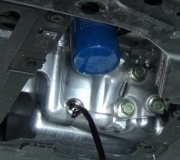No experience with Marvel Mystery Oil. I do use it for other things.
Going way back to the late '70s, I've heard many stories about synthetic oil being "cohesive to itself", meaning if you have a leak, the oil will continue to pull itself out making the leak appear to be worse. A former student had a late '80s Ford truck with no oil leak. He switched to synthetic oil, then within a week it developed a huge leak leaving a puddle everywhere he parked. After two months, he switched back to conventional oil. The leak became much less, but it never totally cleared up.
My suspicion is the two types of oils used non-compatible additives. Evidence of that can be seen when someone changes brands of oil even though both are conventional. It's common to see leaks develop, regardless of which brand you've switched to. An old seal conditioner additive might be dissolved by a detergent in the new oil, for example.
I use only Valvoline in my 1980 Volare, only because it was the least expensive brand back then. Mobil One synthetic goes in my 2014 Ram since I got it at 4200 miles. My old rusty trusty '88 Grand Caravan gets whatever is the cheapest farm and home store brand at the time. Never had a single oil leak in 440,000 miles. My cousin believes in Pennzoil. Many people do not.
Do you have a history of how or why this sludge developed? If it was from neglect by a previous owner, I would just do regular oil changes, perhaps a little more frequently than normal for now. I don't see an advantage to switching to synthetic oil.
Tuesday, March 15th, 2022 AT 3:24 PM




